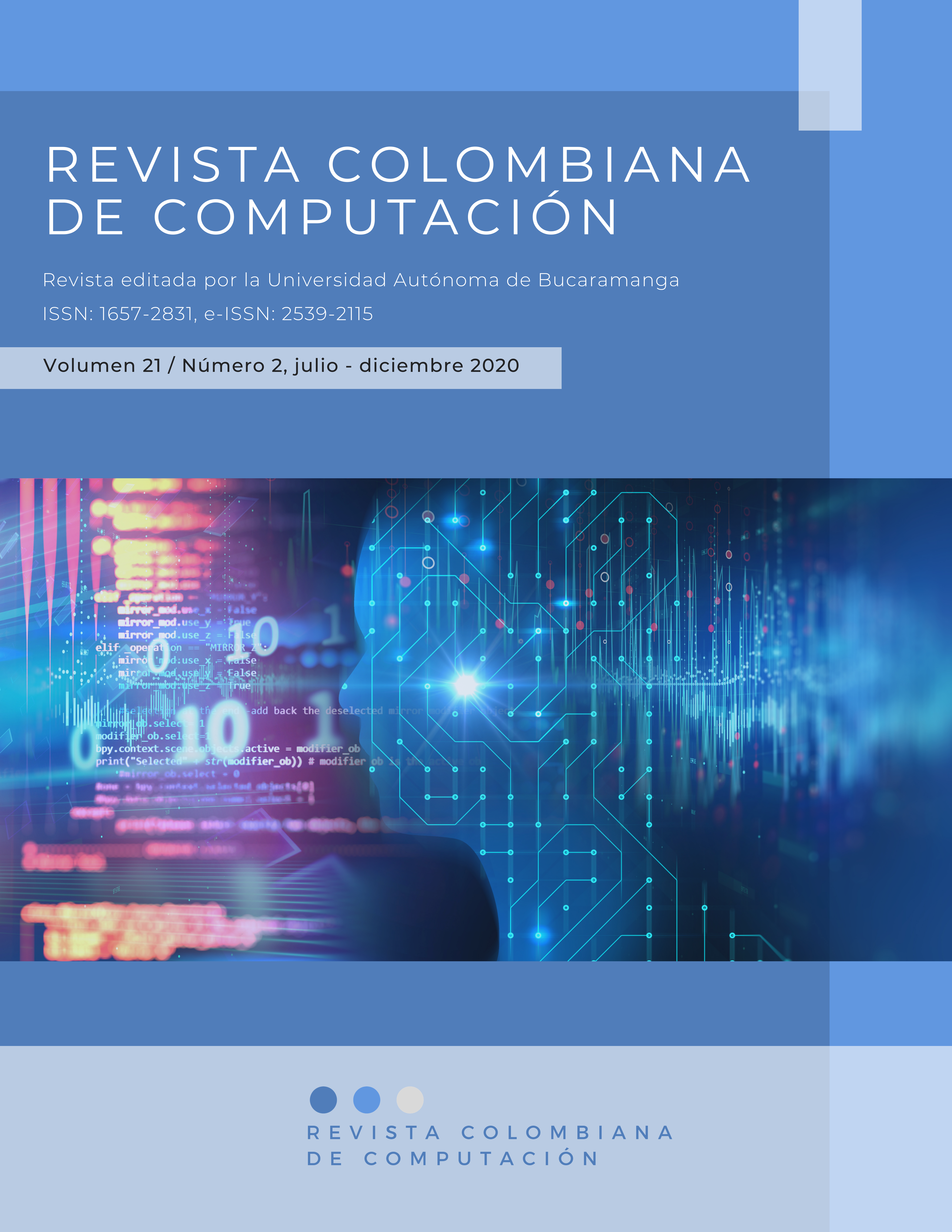Diseño colaborativo basado en ThinkLets como apoyo a la enseñanza de la Programación
Resumen
La incorporación del trabajo colaborativo en el ámbito educativo crece día a día, al igual que el número de grupos de investigación y proyectos asociados a este tema, dado que las actividades de aprendizaje especificadas de forma colaborativa promueven la comunicación, la coordinación y la negociación al interior de los grupos. Si bien se ha demostrado la utilidad práctica de esta estrategia en diferentes niveles de formación, no se ha hecho mucho énfasis en una parte fundamental: el diseño de los procesos colaborativos inherentes. La Ingeniería de la Colaboración destaca para ello el uso de patrones de colaboración y de ThinkLets como unidades primarias de diseño, lo cual tiene como objetivo primordial la reutilización. Este artículo presenta una propuesta de actividad colaborativa a implementarse como apoyo en la enseñanza de cursos iniciales de Programación en el ámbito universitario, la cual basa su diseño colaborativo en la utilización de patrones y ThinkLets.
Referencias bibliográficas
Briggs, R. O., de Vreede, G.-J., Nunamaker Jr., J. F., & Tobey, D. (2001). ThinkLets: Achieving predictable, repeatable patterns of group interaction with Group Support Systems (GSS). Proceedings of the Hawaii International Conference on System Sciences, 32. https://doi.org/10.1109/HICSS.2001.926238
Briggs, R. O., Kolfschoten, G. L., & de Vreede, G.-J. (2005). Toward a Theoretical Model of Consensus Building. Proceedings of the Eleventh Americas Conference on Information Systems, 101–110. https://aisel.aisnet.org/amcis2005/12
Briggs, R. O., Kolfschoten, G. L., de Vreede, G.-J., & Dean, D. L. (2006). Defining Key Concepts for Collaboration Engineering. Proceedings of the Twelfth Americas Conference on Information Systems, 121–128. https://aisel.aisnet.org/amcis2006/17
Collazos, C., & Mendoza, J. (2006). How to take advantage of “cooperative learning” in the classroom. Educación y Educadores, Volumen 9(4128), 61–76.
Coto, M., Collazos, C. A., & Mora-Rivera, S. (2016). Modelo Colaborativo y Ubicuo para apoyar los procesos de enseñanza-aprendizaje a nivel Iberoamericano. Revista de Educación a Distancia (RED), 48, 1–30. https://doi.org/10.6018/red/48/10
de Vreede, G.-J., & Briggs, R. O. (2005). Collaboration Engineering: Designing Repeatable Processes for High-Value Collaborative Tasks. Proceedings of the 38th Annual Hawaii International Conference on System Sciences, 1–10. https://doi.org/10.1109/HICSS.2005.144
Guerrero, L. A., Alarcon, R., Franco, F., Hiberico, V., & Collazos, C. (1999). Una Propuesta para la Evaluacion de Procesos de Colaboracion en Ambientes de Aprendizaje Colaborativo. Proceedings of the International Workshop of Educative Software, TISE’99, 1–10.
Hwang, G.-J., Liang, Z.-Y., & Wang, H.-Y. (2016). An Online Peer Assessment-Based Programming Approach to Improving Students’ Programming Knowledge and Skills. 2016 International Conference on Educational Innovation through Technology (EITT), 81–85. https://doi.org/10.1109/EITT.2016.23
King, A. (2007). Scripting Collaborative Learning Processes: A Cognitive Perspective. En F. Fischer, I. Kollar, H. Mandl, & J. M. Haake (Eds.), Scripting Computer-Supported Collaborative Learning (pp. 13–37). Springer. https://doi.org/10.1007/978-0-387-36949-5_2
Kolfschoten, G. L., & de Vreede, G.-J. (2007). The Collaboration Engineering Approach for Designing Collaboration Processes. En J. M. Haake, S. F. Ochoa, & A. Cechich (Eds.), Groupware: Design, Implementation, and Use (Vol. 4, pp. 95–110). Springer, Berlin, Heidelberg. https://doi.org/10.1007/978-3-540-74812-0_8
Revelo-Sánchez, O., Collazos-Ordóñez, C. A., & Jiménez-Toledo, J. A. (2018). El trabajo colaborativo como estrategia didáctica para la enseñanza/aprendizaje de la programación: una revisión sistemática de literatura. TecnoLógicas, 21(41), 115–134. https://doi.org/10.22430/22565337.731
Santanen, E. L., & de Vreede, G.-J. (2004). Creative approaches to measuring creativity: comparing the effectiveness of four divergence thinkLets. Proceedings of the 37th Annual Hawaii International Conference on System Sciences, 1–10. https://doi.org/10.1109/HICSS.2004.1265093
Sitthiworachart, J., & Joy, M. (2004). Effective peer assessment for learning computer programming. ACM SIGCSE Bulletin, 36(3), 122–126. https://doi.org/10.1145/1026487.1008030
Spiller, D. (2012). Assessment Matters: Self-assessment and Peer Assessment. En Teaching Development Unit. Hamilton: University of Waikato.
Topping, K. J., Smith, E. F., Swanson, I., & Elliot, A. (2000). Formative Peer Assessment of Academic Writing Between Postgraduate Students. Assessment & Evaluation in Higher Education, 25(2), 149–169. https://doi.org/10.1080/713611428
van Gennip, N. A. E., Segers, M. S. R., & Tillema, H. H. (2010). Peer assessment as a collaborative learning activity: The role of interpersonal variables and conceptions. Learning and Instruction, 20(4), 280–290. https://doi.org/10.1016/j.learninstruc.2009.08.010














